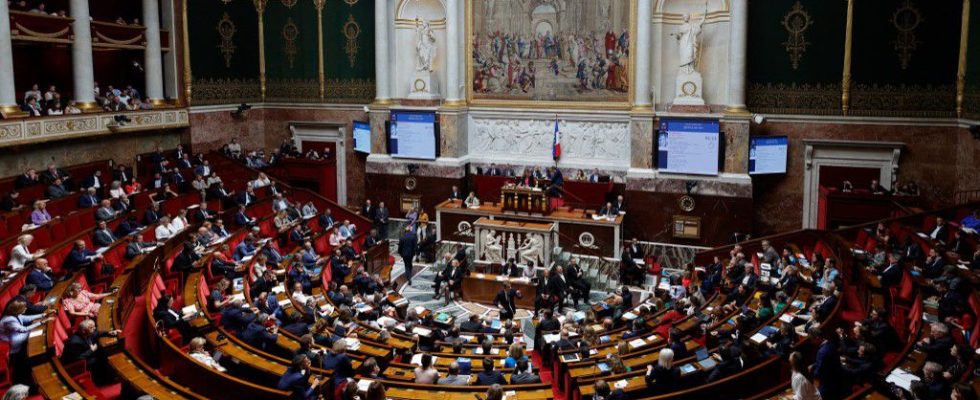New requirements criticized for RSA beneficiaries and a reorganization of the public employment service around a Pôle Emploi renamed “France Travail”: the National Assembly adopted this Tuesday, October 10 at first reading the bill “for full employment”. Supported by the Minister of Labor Olivier Dussopt, the text received 310 votes for and 251 against. It must now be the subject of negotiation between deputies and senators to try to reach a common version of the bill, already adopted in July by the upper house.
15 hours of minimum weekly activities
The government ended up accepting an insistent request from the right: the explicit mention of a minimum of 15 hours of weekly activities for all those registered on a future large list of job seekers, now including all beneficiaries. of the RSA. Against the advice of the government, the Senate had already inserted this minimum into the text it voted on in July, then watered down by the deputies in committee.
The compromise sealed in the hemicycle between the right and the presidential majority does mention the 3 p.m. week, but with exceptions, for health reasons or even childcare problems. The number of hours may also be reduced more widely depending on “individual situations”.
This solution “goes in the right direction” by setting 15 hours as an “objective”, rejoiced Olivier Dussopt during the debates, who was reluctant to engrave an hourly volume unsuitable for some and impossible to offer to all. “It is not free work, nor volunteering” but training or integration activities, he also insisted in defense of compulsory activities, attacking the “totem” of aid “without compensation”. ” who “locks in” precariousness.
He similarly defended a new type of sanctions for RSA beneficiaries who do not respect their obligations. Their allowance may be suspended, but recoverable in the event of “remobilization”. However, within a limit of three months of payment, introduced in the Senate.
Pôle Emploi renamed “France Travail”
The bill, which sets the course for an unemployment rate reduced to 5% by 2027, aims to intensify support for people furthest from employment. Thanks in particular to better coordination of actors in the public employment service, around a Pôle Emploi renamed “France Travail” – a name change erased in the Senate, but reinstated in the Assembly.
This network reorganization should notably allow better sharing of information, according to the government. It’s a “gas factory”, retorts the left. For the CFDT, “neither the governance of the project nor the dedicated resources are up to the ambitions”. The union is also alarmed by measures which “will further weaken the most precarious”. “This reform reinforces the collective unconscious which says, basically, that if people are in this situation (…) it is because they were looking for it”, criticized the Defender of Rights Claire for her part. Hédon in Libération.
If the right supported the key measures of the text, it on the other hand contributed to a defeat of the government, by voting – with part of the Nupes and the RN – against an article on childcare, already planed in the Senate. The Minister of Solidarity Aurore Bergé pleaded in vain for this “sketch” of a “public early childhood service”. But the opposition criticized the vagueness of the planned means and the right opposed constraints deemed too strong on the municipalities, to which the text gave the status of organizing authority. The joint committee where senators and deputies will try to negotiate a common text could return to the subject.
A more consensual aspect, the articles giving new rights to disabled workers were maintained without difficulty during the debates.
